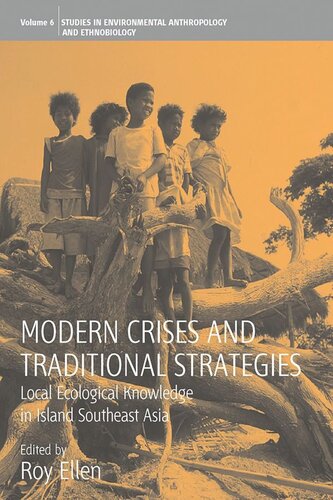

Most ebook files are in PDF format, so you can easily read them using various software such as Foxit Reader or directly on the Google Chrome browser.
Some ebook files are released by publishers in other formats such as .awz, .mobi, .epub, .fb2, etc. You may need to install specific software to read these formats on mobile/PC, such as Calibre.
Please read the tutorial at this link: https://ebookbell.com/faq
We offer FREE conversion to the popular formats you request; however, this may take some time. Therefore, right after payment, please email us, and we will try to provide the service as quickly as possible.
For some exceptional file formats or broken links (if any), please refrain from opening any disputes. Instead, email us first, and we will try to assist within a maximum of 6 hours.
EbookBell Team

0.0
0 reviewsThe 1990s have seen a growing interest in the role of local ecological knowledge in the context of sustainable development, and particularly in providing a set of responses to which populations may resort in times of political, economic and environmental instability. The period 1996-2003 in island southeast Asia represents a critical test case for understanding how this might work. The key issues explored in this book are the creation, erosion and transmission of ecological knowledge, and hybridization between traditional and scientifically-based knowledge, amongst populations facing environmental stress (e.g. 1997 El Niño), political conflict and economic hazards. The book will also evaluate positive examples of how traditional knowledge has enabled local populations to cope with these kinds of insecurity.